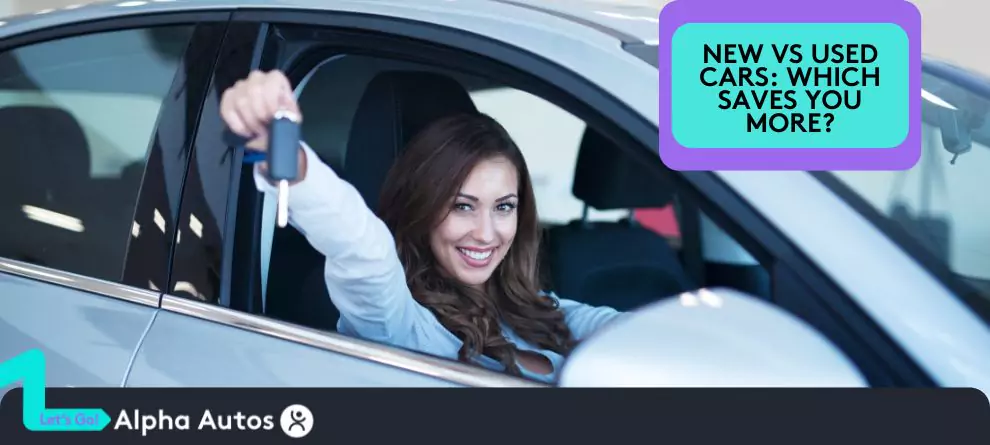

How to Buy a Used Car Without Getting Scammed
The dream of owning a used car can quickly turn into a nightmare if you fall victim to unscrupulous sellers or dodgy deals. While there are plenty of genuine bargains to be found, the used car market unfortunately has its share of potential pitfalls. This guide is designed to equip Aussie buyers with the essential knowledge and practical steps to navigate the second-hand market with confidence and avoid getting stung by scams, ensuring a safe and successful purchase. We’ll cover everything from initial research to spotting red flags and conducting thorough checks.
1. Laying the Groundwork: Research and Preparation
Smart buying starts long before you lay eyes on a potential vehicle. Thorough research and preparation are your first line of defence against scams.
- Know Your Market: Spend time researching the typical prices for the specific make and model of used car you’re interested in. Use reputable Australian websites like Carsales, Gumtree Cars, and Drive.com.au to get a realistic understanding of market values based on age, mileage, condition, and features.
- Set a Realistic Budget: Determine your absolute maximum budget, and be sure to factor in all the additional costs associated with buying a used car beyond just the sale price. This includes registration fees, insurance costs (get quotes beforehand!), the cost of a pre-purchase inspection, and potentially any immediate maintenance you anticipate.
- Identify Your Needs: Be clear about your requirements in a vehicle. What size do you need? What features are essential? What will you primarily use the car for? Having a clear idea of your needs will help you avoid being swayed by enticing but ultimately unsuitable vehicles and potentially pushy sales tactics.
2. Spotting Red Flags
Being able to recognise the warning signs of a potentially fraudulent or problematic sale is crucial for staying safe in the used car market. Keep a sharp eye out for these red flags:
- Unbelievably Low Prices: As the old saying goes, if a deal seems too good to be true, it probably is. A price significantly below the market average for a comparable vehicle should immediately raise suspicion. It could indicate a car with hidden mechanical issues, a salvaged title, or even a stolen vehicle.
- Pushy Sellers: High-pressure sales tactics that urge you to make a decision immediately (“Someone else is coming to look at it any minute!”) are a classic manipulation technique to prevent you from having time to think clearly, conduct thorough checks, or seek independent advice. A genuine seller will allow you the time you need.
- Vague or Evasive Answers: When you ask specific questions about the car’s history, condition, or paperwork, a dodgy seller might provide vague, unclear, or evasive answers. They might avoid direct questions about accidents, servicing, or previous ownership.
- Refusal to Allow Inspection: Any resistance or outright refusal from the seller to allow you to have the car inspected by an independent mechanic of your choosing is a major red flag. A trustworthy seller will be confident in the condition of their vehicle. Excuses like “I don’t have time,” or “You’ll have to buy it first” should be treated with extreme caution.
- Cash-Only Deals: While cash transactions aren’t always inherently suspicious, be particularly wary of sellers who insist on cash-only payments, especially for large amounts. This can be a way for them to avoid leaving a paper trail or to facilitate the sale of an illegitimate vehicle. Legitimate transactions often involve bank transfers or other traceable payment methods.
- Seller Reluctance to Provide VIN: The Vehicle Identification Number (VIN) is essential for conducting crucial history checks (like a PPSR check). A seller who is reluctant to provide the VIN or offers excuses why they can’t give it to you is highly suspicious.
- Mismatched Paperwork: Carefully check that the VIN on the car itself (usually found on the dashboard, doorjamb, and engine bay) matches exactly the VIN on the registration papers and any other documentation provided. Any discrepancies could indicate a stolen vehicle or other serious issues.
- Seller Operating from Unusual Locations: Be cautious if the seller insists on meeting you in a public car park, on the side of the road, or at other unusual or inconvenient locations rather than their home or a registered dealership. This can be a tactic to avoid scrutiny or to make a quick getaway if something goes wrong.
3. The Power of the VIN: Your Key to the Past
The Vehicle Identification Number (VIN) is a unique 17-character code, like a car’s fingerprint, and it unlocks a wealth of information about its history.
- Locate and Verify the VIN: The VIN is typically found in several locations:
- On the dashboard, visible through the windshield on the driver’s side.
- On a sticker or plate inside the driver’s side doorjamb.
- In the engine bay, often on a metal plate.
- On the car’s registration papers and insurance documents.
- Crucially, ensure the VIN on the car physically matches the VIN on all the documents. Any mismatch is a serious red flag.
- Run a PPSR Check: The Personal Property Securities Register (PPSR) is a national database that reveals if there’s any outstanding car finance owing on the car, if it’s been reported stolen, or if it’s been written off due to accident damage or other reasons. This is an essential check. You can perform an official PPSR check on the Australian government’s website: https://www.ppsr.gov.au/. There’s a small fee for this search, but it’s a vital investment in your peace of mind.
- Consider a Comprehensive Car History Report: While a PPSR check is crucial, a more detailed car history report can provide even greater insight. Companies like CarHistory and AutoCheck (verify these are current URLs) compile information from various sources to reveal things like accident history, odometer readings, registration details, and more. While there’s an additional cost, this can be worthwhile, especially for higher-value vehicles.
4. Eyeballing the Goods: Thorough Inspection is Key
Even with a clean history report, a thorough physical inspection of the car is vital.
- Exterior Checks:
- Look for mismatched paint, which can indicate accident repairs.
- Check for uneven panel gaps, which can also be a sign of bodywork.
- Inspect for rust, particularly around wheel arches, door sills, and under the car.
- Look closely for any signs of accident damage, such as dents, scratches, or misaligned bumpers.
- Interior Checks:
- Inspect the upholstery and carpets for excessive wear and tear, stains, or dampness (which could indicate leaks).
- Test all the electronics: lights, indicators, radio, air conditioning, power windows, etc., to ensure everything works.
- Check that the odometer reading seems consistent with the car’s age and condition.
- Under the Bonnet:
- Check all fluid levels (oil, coolant, brake fluid, etc.) and look for any leaks.
- Inspect for corrosion around the battery terminals and any obvious damage to hoses or belts.
- Tyres:
- Examine the tread depth. Australian law requires a minimum tread depth of 1.5mm. Uneven wear can indicate alignment problems.
- Check the overall condition of the tyres for cuts, bulges, or other damage.
- Test Drive:
- Drive the car in various conditions (city streets, highways) to assess its handling, acceleration, and braking.
- Listen carefully for any unusual noises from the engine, transmission, or suspension.
- Ensure the brakes are responsive and don’t pull to one side.
5. Getting a Professional Opinion: The Pre-Purchase Inspection (PPI)
Even if you’re mechanically inclined, a Pre-Purchase Inspection (PPI) by a qualified mechanic is highly recommended.
- Why it’s Essential: A mechanic can identify hidden mechanical issues or potential problems that might not be obvious during a visual inspection or test drive. They have the expertise to assess the car’s overall roadworthiness.
- What they Check: A typical PPI covers the engine, transmission, brakes, suspension, steering, and often includes a diagnostic scan to check for any stored fault codes.
- Finding a Mechanic: Use your own trusted mechanic if you have one. Otherwise, find a reputable local service that specialises in PPIs. Ask for recommendations or check online reviews.
- Cost vs. Risk: The cost of a PPI (usually a few hundred dollars) is a small price to pay compared to the potential cost of major repairs down the track. It’s an investment in your peace of mind and can save you thousands.
6. Sorting the Paperwork
Ensuring all the necessary paperwork is in order is crucial for a legal and hassle-free purchase.
- Transfer of Registration: The seller is responsible for providing you with the required documents to transfer the car’s registration into your name in your specific Australian state or territory. Familiarise yourself with the requirements of your local transport authority (e.g., Service NSW, VicRoads, Queensland Transport).
- Roadworthy Certificate (RWC): In most Australian states (though rules vary slightly), a valid Roadworthy Certificate (also known as a safety certificate) is legally required for selling a used car. This certificate confirms that the vehicle meets the minimum safety standards. Check the RWC’s validity date and ensure it’s from a licensed inspection station. Be wary of sellers who avoid providing a RWC or offer a very old one.
- Receipt of Sale: Always obtain a detailed receipt of sale from the seller. This document should clearly outline the agreed-upon price, the car’s VIN, the full name and address of the seller, the date of sale, and any specific conditions or agreements made during the sale.
7. Payment Safety: Protecting Your Hard-Earned Cash
When it comes to payment, prioritising safety is paramount to avoid scams.
- Avoid Large Cash Transactions: For significant amounts, it’s generally safer to avoid paying entirely in cash. Opt for more secure and traceable methods like bank transfers or, if dealing with a licensed dealer, credit card payments.
- Verify Seller Identity: If you’re buying privately, don’t hesitate to ask for the seller’s identification (driver’s license, etc.) and verify their details against the registration papers.
- Be Cautious with Online Payments: If dealing with a seller you’ve only encountered online, be extremely cautious about sending large sums of money upfront. Only use secure and reputable payment platforms if necessary and be wary of requests for unusual payment methods.
- Consider Escrow Services (for online transactions): For online transactions with unfamiliar sellers, consider using a reputable escrow service that holds the funds until the car is delivered and inspected.
8. Trust Your Gut
Finally, and perhaps most importantly, trust your intuition. If at any point during the process something feels wrong, the seller is acting suspiciously, or you have any lingering doubts, don’t hesitate to walk away from the deal. There are plenty of other used cars out there, and your peace of mind and hard-earned cash are worth more than any perceived bargain.
Conclusion
By arming yourself with knowledge and following these key steps – thorough research, vigilant red flag detection, leveraging the power of the VIN, conducting meticulous inspections (both yourself and professionally), scrutinising the paperwork, ensuring payment safety, and most importantly, trusting your instincts – you can navigate the Australian used car market with confidence and significantly reduce the risk of falling victim to scams. Take your time, be thorough, and don’t feel pressured into a purchase that doesn’t feel right. With patience and diligence, you can find a reliable second-hand vehicle that meets your needs and gets you safely on the road.
Tired of the Same Old Ride? Discover Alpha Autos
Ready to upgrade your current vehicle without the worry of dodgy deals? At Alpha Autos, we pride ourselves on offering a transparent and trustworthy experience when buying a used car. We adhere to ethical practices, provide clear vehicle histories, and welcome independent inspections, giving you the confidence you deserve in your purchase. Skip the stress and uncertainty of private sales and discover a range of quality, pre-loved vehicles at Alpha Autos. Your next reliable ride is waiting – come and find it with us.
Categories
- Auto Detailing (2)
- Car Buying Guide (18)
- Car Financing (1)
- Car Maintenance (2)
- Car News (2)
- Used Cars For Sale (3)
Recent Posts
Related posts


Best Financing Options for Buying a Used Car

How to Check a Used Car’s History Before You Buy





